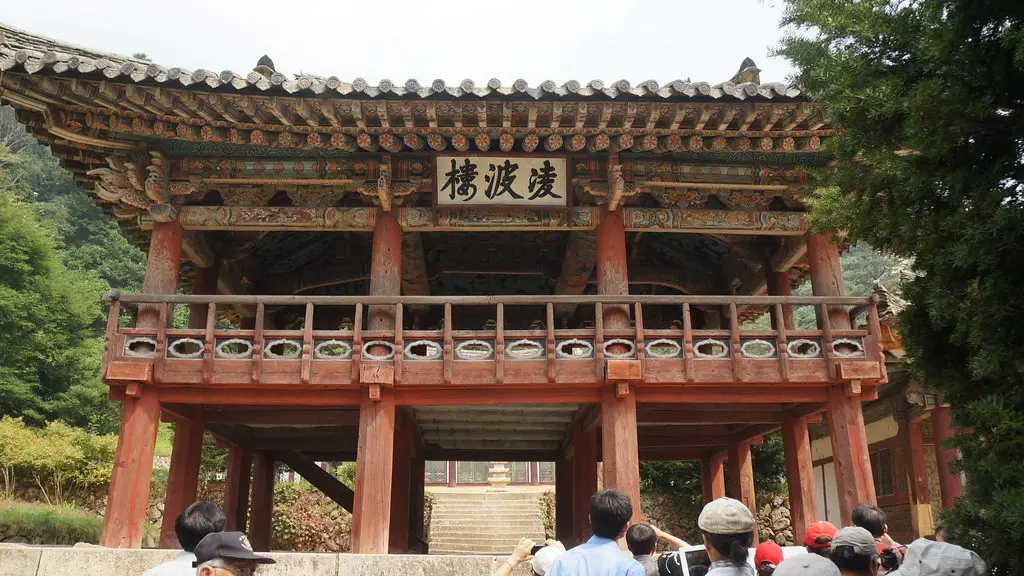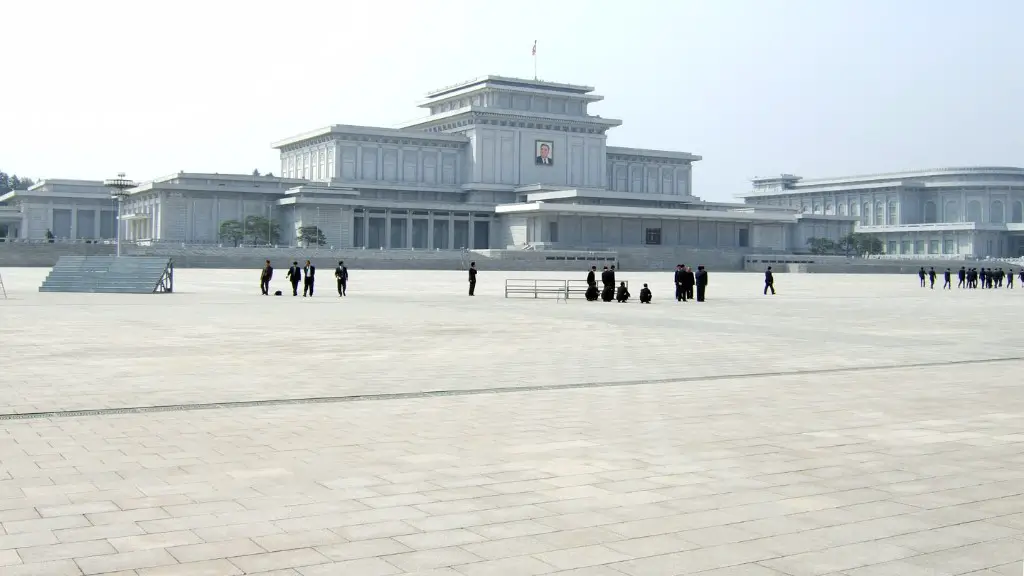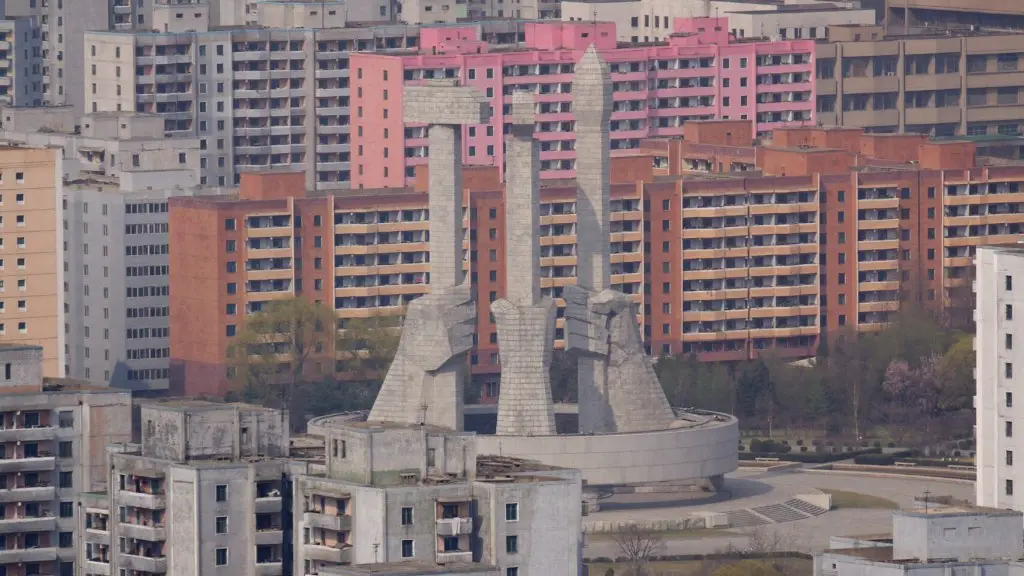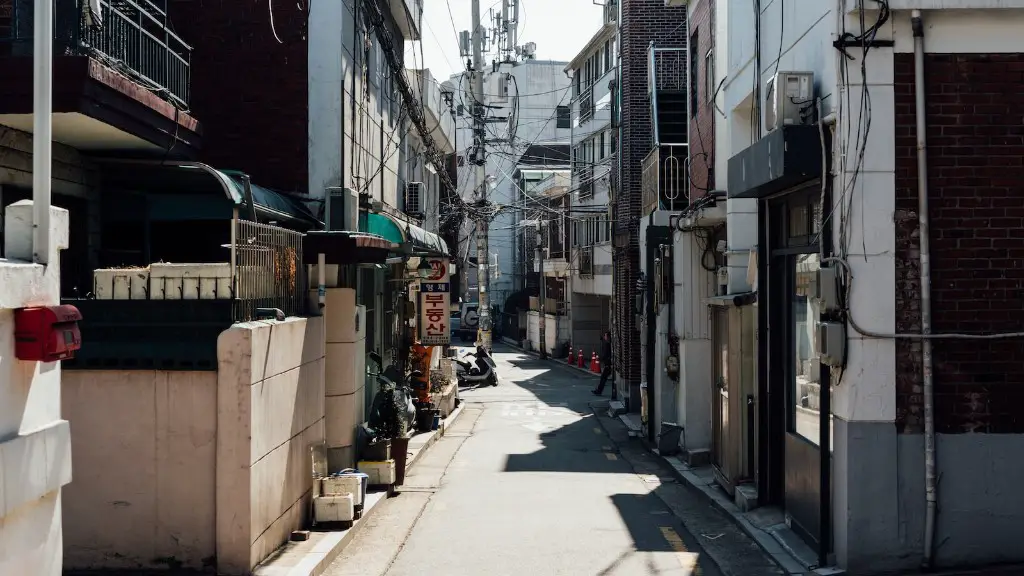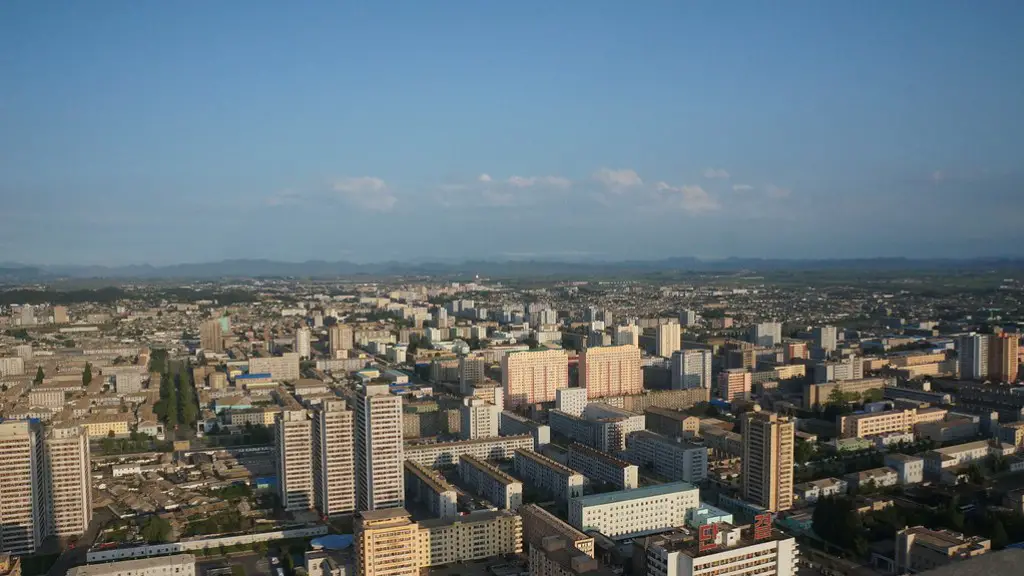Economic Struggles of North Korea
North Korea, also known as the Democratic People’s Republic of Korea, is an authoritarian state located on the Korean Peninsula in East Asia. It has been categorized as a developing nation since 1991, when it was included in the Least Developed Countries (LDC) list of the United Nations. Despite North Korea’s rich natural resources, its economy has been struggling for decades due to a highly centralized planned system, international sanctions, and a lack of foreign investments.
In order to understand North Korea’s economic challenges, it is necessary to analyze its main economic indicators. According to the World Bank, North Korea’s GDP is significantly lower than the GDPs of its neighbours, with a GDP per capita of $1,800 in 2018 compared to the regional average of $32,303. Furthermore, poverty is widespread in North Korea. In 2018, 35.8% of the population was living below the poverty line.
To make matters worse, North Korea’s economic instability is compounded by a shortage of food and medicine. According to a survey conducted by the Food and Agriculture Organisation (FAO) in 2017, malnourishment affects 20% of children under age 5 and 36% of pregnant women in North Korea. In addition, due to the country’s lack of modern health care facilities, life expectancy is lower than the regional average.
North Korea’s government has taken some action to try and improve its economy. For example, in July 2018, the North Korean government revalued its currency in an attempt to purge the country of foreign currency reserves and eradicate the black market. However, this decision only caused further hardship for North Koreans, who lost their savings overnight.
In addition, due to the politically sensitive relations between North Korea and the international community, foreign investments are extremely limited. The country’s lack of access to global capital markets makes it difficult for the government to finance public investments, further straining its economy.
The situation in North Korea is further complicated by international sanctions. In response to the country’s nuclear weapons program and human rights abuses, the United Nations, United States and other countries have imposed numerous economic sanctions over the past several years. These sanctions block North Korea from accessing foreign currencies, increasing prices, and deterring foreign businesses from investing in the country.
Political Challenges of North Korea
North Korea’s economic woes cannot be solely attributed to its economic indicators – the country’s political system is at fault too. North Korea is a heavily centralized state, with political power monopolized by the Kim family, who controls the government, military, and economy.
The Kim family has attempted to legitimize and prolong their rule with a mix of “military-first” policy, personality cult, and demonstrations of strength. This military-first policy was instituted in 1997 and favors defense spending over other sectors of the economy. It also diverts funds away from healthcare and other social services, exacerbating North Korea’s poverty and malnourishment.
Furthermore, the Kim family’s authoritarian rule has resulted in numerous human rights violations, including torture, forced labor, murders, disappearances, deprivation of freedom of expression and movement, and harsh restrictions on organized religion. According to Freedom House, North Korea is the most repressive country in the world and has been given a score of “Not Free” since the organization began rating the country in 1972.
The restrictive nature of North Korean politics has had a far-reaching impact on the country’s economy. It prevents the country from effectively implementing economic reforms and, as a result, its economy has been unable to develop. In addition, the Kim family has been reluctant to adopt more open and trade-friendly policies that could bring in vital capital and stimulate economic growth.
International Involvement In North Korean Affairs
In recent years, the international community has become increasingly involved in North Korean affairs. Countries such as the United States and South Korea are pushing for a peaceful denuclearization process and for an end to the human rights abuses in the country.
The United States and China, in particular, have played a significant role in North Korean politics. The US has repeatedly imposed economic sanctions against North Korea and is pushing for more comprehensive measures to ensure denuclearization, while China has provided economic assistance and diplomatic support to North Korea throughout its history. In 2018, the US and China agreed to a “freeze-for-freeze” agreement, in which North Korea agreed to suspend its nuclear and ballistic missile tests in exchange for a suspension of US military exercises in South Korea.
In addition, the United Nations has become increasingly involved in North Korean affairs. The UN has sent humanitarian aid to the country and spearheaded a series of initiatives to address the human rights abuses in the country. Furthermore, the UN has also taken steps to increase economic development in North Korea, including launching the UN Development Program in 2007 and increasing international aid to the country.
Solutions To North Korea’s Economic Woes
Despite the international community’s best efforts, North Korea’s economy remains stagnant and its economic woes continue to worsen. To improve the situation, the country’s leaders must first focus on reforming the political system and allowing more economic freedom. This includes legalizing private businesses, opening the country to foreign investments, and improving collaboration between the government and the private sector.
Furthermore, North Korea must also focus on increasing its access to foreign currencies. This can be achieved by re-establishing diplomatic ties with other countries and negotiating the removal of economic sanctions. If the country is able to access foreign currencies, it will be able to finance public investments, stimulate economic growth, and reduce poverty.
Finally, North Korea must address its malnourishment problem by increasing its agricultural production and investing in healthcare. By investing in modern healthcare facilities and providing its citizens with adequate nutrition, North Korea would be able to increase life expectancy and pave the way for a brighter future.
Technology Is Key To North Korean Progress
In addition to political and economic reforms, North Korea must focus on improving its technology to remain competitive in the global economy. Since the country is lacking in modern technology and scientific innovation, its economy has been unable to keep up with its more developed neighbours.
North Korea should invest in more advanced technology, such as robots and artificial intelligence, to increase its productivity and reduce its reliance on manual labor. This would help the country to be more competitive and to attract foreign investments.
In addition, North Korea should also focus on improving its infrastructure, such as the transport networks and electricity grids. This will help the country to become more efficient and modernized, enabling its economy to compete in the global market.
Finally, North Korea should use the internet to facilitate economic growth. By opening up to the global market, the country can not only access new technologies, but also new ideas and strategies from all over the world. This would enable North Korea to innovate, create, and develop its economy.
Conclusion
North Korea is a developing nation and its economic woes can no longer be ignored. Despite its rich natural resources, the country is facing a number of challenges that have prevented it from achieving economic progress. These include a highly centralized political system, a lack of foreign investments, and international sanctions.
To improve its economy, North Korea must focus on reforming its political system and allowing more economic freedom. In addition, the country must increase its access to foreign currencies and invest in modern technology. By taking these steps, North Korea could unlock its economic potential and pave the way for a brighter future.
